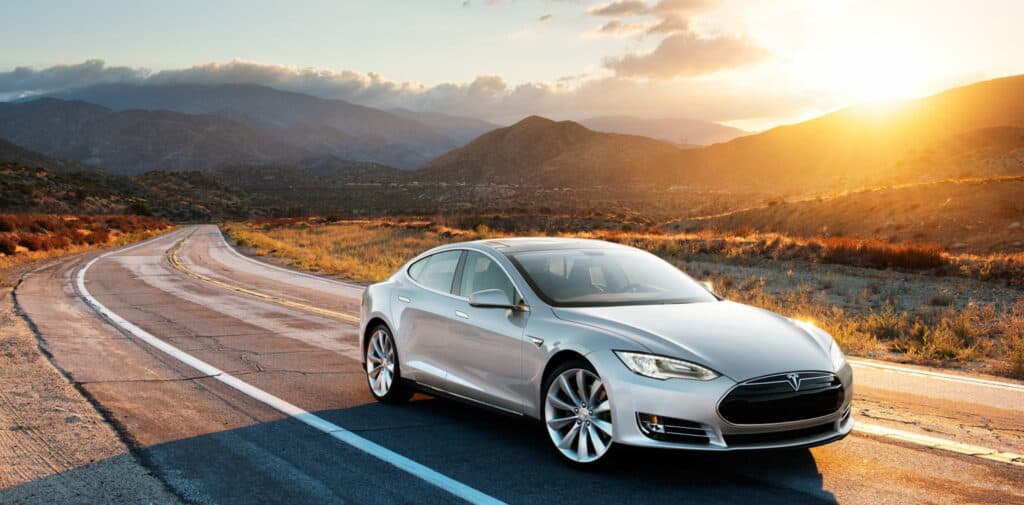The popularity of plug-in hybrid and purely electric cars has increased significantly over the past few years. Demand is only likely to increase further as manufacturers introduce greater efficiency, coupled with increased choice and performance, and with the increased availability of EV charging points.
The Government’s ambition is for at least 50 per cent of new car sales to be ultra-low emission by 2035 and therefore they are actively encouraging the use of electric vehicles by providing a range of tax breaks.
The tax breaks principally apply to corporate ownership and this is reversing the move away from the provision of company cars which we have seen over recent years.
Purchasing the vehicle or leasing?
If a company purchases the vehicle then capital allowances will be available based on the acquisition cost of the vehicle. If the company leases the vehicle, no capital allowances will be available but tax relief will be available on the monthly lease rentals. Whilst there is no right or wrong answer about whether the car should be purchased or leased, the cash flow impact and the tax position of the company should be considered before any decision is made. This is particularly the case during periods of high interest rates when the cost of interest could be significant.
Capital Allowances
Most cars purchased by companies will qualify for tax relief on a writing down basis at either the main rate (18%) or the special rate (6%). For new and unused cars with CO2 emissions of 0 g/km, there is a special enhanced capital allowance rate of 100% available in the year of acquisition. The enhanced allowance is available from 1st April 2021.
Applying the main rate of writing down allowances after 8 years of ownership the company will still only have received tax relief on 80% of the cost of the vehicle, but with the enhanced capital allowance regime available for electric cars the full cost can be relieved in year one.
Only new electric cars qualify for enhanced capital allowances, second hand electric cars do not qualify for this enhanced allowance.
On the flip side, as the electric car will have incurred 100% tax relief on purchase, when the car is disposed of allowances claimed may be clawed back as the sales proceeds of the car will need to be deducted from the capital allowances pool.
Benefits in Kind
The Benefit in Kind (“BIK”) charge for cars provided by an employer has increased over the years with the charge based on the CO2 emissions of the vehicle and the list price. The higher the CO2 emissions, the larger the percentage applied to the list price to calculate the BIK, which is usually taxed at the employees highest tax rate.
The BIK taxation rules means that switching to an electric car can bring significant tax benefits. From 6 April 2021 the BIK for electric vehicles was 1% of the list price. The BIK increased to 2% for the tax year ending 5th April 2023 and will remain at this level until 5th April 2025. From 6th April 2025 this will increase to 3%; from 6th April 2026 to 4% and from 6th April 2027 to 5%.
There are also beneficial BIK rates for plug-in hybrid vehicles which are dependent on their electric only range.
Associated benefits
HMRC do not consider electricity to be a fuel for car fuel benefit purposes.
HMRC introduced a new rate from 1 December 2022 of 8p per mile for fully electric company cars. This is the tax-free mileage rate that can be paid by employers or claimed by employees when they use a company electric car for business mileage.
If you have a hybrid company car you can use the fuel only rate applicable to the petrol or diesel engine which the car has.
The cost of charging an electric vehicle at work is completely tax free.
The cost of installing a vehicle charging point at the employee’s home is also a tax free benefit.
An employer can pay for a charge card up to a value of £100 per year to allow individuals access to local authority vehicle charging points without incurring a benefit.
It should though be noted that the cost of charging electric vehicles has increased significantly following the increases in energy prices and the advantage over petrol and diesel costs has reduced significantly, particularly when the vehicle is charged at commercial charging sites.
Employer’s National Insurance
The Employer’s National Insurance charge is calculated based on the employee’s benefit in kind and therefore will be significantly less than for petrol or diesel vehicles.
Salary Sacrifice arrangements
As the tax benefits of operating an electric vehicle as your company car can be significant some employees may find it beneficial to reduce their salary in order to allow them to incorporate an electric vehicle as part of their overall remuneration package. There are specific provisions in the salary sacrifice legislation which exempt salary sacrifice for ultra-low emissions vehicles (those generating emissions below 75g of CO2 per kilometre) from the provisions which seek to tax the higher amount when the salary foregone exceeds the taxable value of the BIK provided.
The calculations here can be quite complicated but we would be happy to review this for you.
There are also some potential pitfalls to avoid here, such as ensuring that the cash earnings after the salary sacrifice do not fall below the National Minimum Wage and making sure the arrangement is correctly documented.
VAT
HMRC have no special VAT rules for electric cars and hybrids. The VAT can only be recovered by a VAT registered business on the purchase of the car if there is no private use at all. Private use includes home-to-work journeys.
If you lease the car, then you can recover 50% of the VAT on the hire charges and all the VAT on any additional charges such as maintenance or roadside assistance.
We recommend that you take professional advice to ensure that you are making the right decision for your personal circumstances.
Details correct at 29.09.2023.







 Production
Production